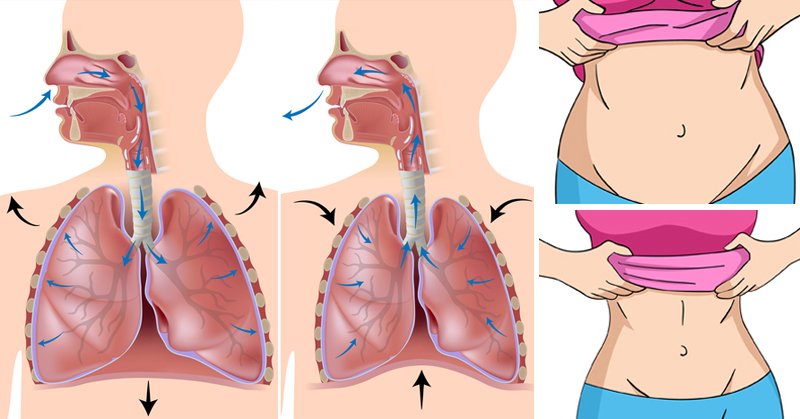Obesity is a disease that today is classified as an epidemic throughout the world, and millions of people die each year due to the health problems that it causes. It used to be considered a disease in high-income countries, but now it is also part of low- and middle-income countries. Mexico is the number one country in obesity in both adults, children and even babies.
Stages of obesity
In the early stages, obesity is considered a “normal” symptom of overeating or a manifestation of little or no physical activity.
In advanced stages, it is considered a disease from which others are derived. Some diseases associated with obesity in adults between 40 and 70 years of age who exceed their weight by 30% are: heart problems, hypertension, breathing difficulties such as sleep apnea, diabetes, thrombosis, skin problems, problems in the locomotor system, cancer risk, sexual dysfunctions, psychological problems, and more. The main causes are presented below, as well as the main treatments for combat and prevention.
According to BMI (body mass index) indices, the human body, under normal conditions, contains a percentage of between 15% and 18% of adipose tissue. When the BMI calculation is performed and it is 120% higher than the normal percentage, the state is then obviously obese.
Causes of obesity
Among the causes of obesity is an excess of adipose tissue that ends with an inadequate physical condition. But the development of obesity, over the years in a person’s life, is related to various causes. However, in some cases it is possible to define a single predominant cause that has triggered the energy imbalance. Among the most frequent origins we find:
Sedentary lifestyle
Doing little or no physical activity is considered a sedentary lifestyle. Physical therapy and nutrition experts suggest that a person between the ages of 13 and 45 should exercise three times a week. But it is not only about physical activity, it must include a diet that can help contribute essential nutrients to the human body, call these vitamins, minerals and fiber. In addition, it is suggested that each exercise day be performed no less than 30 minutes that include cardiovascular routines.
Genetics
The role of genetic inheritance in obesity is increasingly important. The predisposition to this state of health can be caused if the father or mother have suffered from this problem or previous generations. Chromosomes have been shown to store information that is transferred to the next generations, which is where this issue comes into play. With specific blood tests that the doctor would recommend, it would be enough to rule out this possibility or not.
Nutritional factors
Obesity can also arise from overeating, which can occur at any time in life. In addition, if it is started at an early age, the influence can be greater. On the other hand, diets rich in fat and carbohydrates can lead to obesity in a person. In this context, it is recommended to eat a balanced diet that allows you to enjoy optimal health without reaching the overweight ranges indicated by the BMI.
Neural factors
Weight gain goes beyond sedentary problems or a poor diet, there are neurological factors that affect the human body . Recent research indicates that one of the main causes of obesity is due to the alteration of metabolism induced by serotonin. This is conjugated with leptin, a hormone that is secreted by adipocytes. When there is a metabolic alteration for an unknown reason, leptin increases considerably and this in turn generates a chain reaction that stimulates serotonin. These instructions reach the hypothalamus and this is where the final process that generates obesity occurs.
How to prevent obesity in children and adolescents?
Young people and children are generally obese when they do not get enough exercise and have poor eating habits. Lifestyle and in some cases, genetics also play an important role in making a child overweight.
Taking the following steps can help prevent obesity in these stages of life.
- Instead of focusing on weight, work slowly but surely to change eating habits and activity levels.
- Parents should be an example to follow. Begin by eating healthy foods and being physically active so that your children are more likely to do the same.
- Push them into physical activity. Children should get one hour of moderate physical activity most days of the week. That promotes weight loss and keeping it off afterward.
- Cut television and computer time to less than two hours a day.
- Encourage children to eat only when they are hungry, and to eat slowly.
- Avoid using food as a reward or withholding food as punishment.
- Keep the refrigerator with plant-based milks like oatmeal or rice instead of dairy, and fresh fruit and vegetables instead of sodas and high-sugar, high-fat snacks.
- Serve at least five servings of fruits and vegetables a day.
- Encourage children to drink water instead of sugary drinks, such as soda, sports drinks, and fruit juices.
How to prevent obesity in adults and proper foods?
If you follow weight loss strategies and stick with it, it will go a long way towards preventing obesity. Changing the way, you eat and exercising more is vitally important. Try the following:
- Get in the habit of consuming five to six servings of vegetables and fruits daily. A serving of fruit is half a cup of fruit juice, for example; It can also be a small or medium piece of fresh fruit, or a quarter cup of dried fruit. A serving of vegetables is equal to one cup of raw vegetables or half a cup of cooked vegetables, it also equals half a cup of vegetable juice.
- Go for whole or whole foods such as wheat bread or another whole grain cereal, also choose brown rice instead of white.
- Avoid saturated fats, industrialized foods, and anything that contains sugar and refined white flour.
- You go a long way when choosing the right size options, so try to measure and weigh what you eat.
- Consuming more calories than you can burn for energy will cause you to gain weight.
- Eliminate foods that are high in calories in a small portion of food.
- Sweat Get half an hour of moderate intensity activity daily. Walk for half an hour, work in the garden, climb stairs, etc.
Fortunately, obesity can be prevented today. It is therefore important to follow a healthy lifestyle based on a balanced and healthy diet. Among the advantages of following a balanced diet for obesity, we find that it can be followed for long periods without causing any negative effect on our health. In particular, if we add these tips to a regular exercise routine, weight gain is probably not a health problem.







